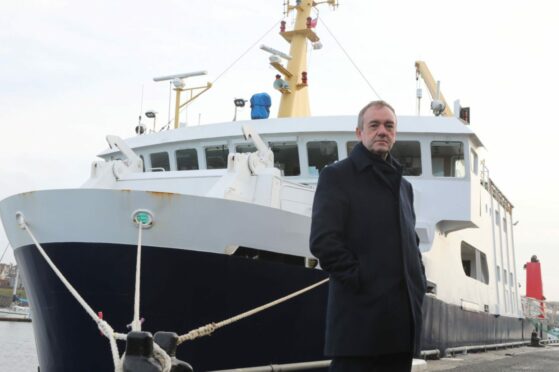Orkney council’s leader and chief executive took a trip to Iceland last week to speak at the Arctic Circle Assembly, promoting Orkney as Europe’s gateway to the Arctic.
Council leader James Stockan was asked about the value of the trip to the man on the street and what exactly makes Orkney a gateway to the north.
Serving the greater good to bring reward
He said: “The benefit to the man on the street, as has been the case in two world wars, is Orkney now finds its place serving the greater good and serving the greater good gives reward in one way or the other.
“The fact is, if things are going to happen they should happen in the place that can accommodate them and in the place that makes the most sense, both commercially and ecologically.”
Mr Stockan pointed to Orkney’s historical place a gateway, whether it was as an important centre of culture and seat of power for the Vikings, as the last port of call for expeditions headed for the Arctic and the northwest passage, or as an important hub for the Hudson Bay Company.
‘We must keep the attention here’
Of course, Mr Stockan also pointed to the use of the county’s natural harbour, Scapa Flow, during war time.
He said: “During the Second World War, Scapa Flow was called ‘the stopper in the north sea bottle’. Behind a stopper is a way in as well as a way out.
“So, looking at Arctic trade routes in the future, if they are going to develop – which most people think is only a matter of time – we must keep the attention here.
“Scapa Flow is a harbour that doesn’t need dredging, it’s a deep harbour and it’s big enough to place the whole of Edinburgh city inside it.”
Visits required to ‘make sure we’re on the radar’
He added: “That’s the scale of the opportunity – it’s massive.
“What we’ve got to do is make sure we can accommodate opportunity, but mitigate against anything that’s detrimental.
“We go to things like the Arctic Circle Assembly to make sure we’re on the radar.
“Now that we’ve got some of the renewables coming on-stream and we’re speaking about making hydrogen or ammonia for marine transport, greening the Arctic shipping routes would be really important.
“In some respects, it seems that the stars are aligning for us.”
Cost of trip is ‘irrelevant in this situation’
Mr Stockan was asked if he felt the price tag of the trip, reported to be £3,000, was worth it.
He said “the money is irrelevant in this situation” and, “we told folk it couldn’t be done for nothing.”
He added: “We wanted to make sure we’re keeping in that arena because we believe we can serve Scotland, we can serve the UK, and we can certainly be a European gateway. ”
Ahead of the trip, during a discussion in the council chamber, Mr Stockan had remarked that he saw things in common with Orkney’s neighbours to the north that he didn’t always see with those to the south.
Nordic and Arctic politics similar to Orkney
Asked to expand on this, he said: “What I’ve found really interesting in the last number of years, since I’ve started travelling to Nordic and Arctic areas, is that our politics are similar in Orkney.
“I wouldn’t have believed that the legacy from way back in Norse times would still be here, but it is – we’re very consensual and we don’t have the sharp divisions seen at Westminster or Holyrood.
“They take very strong lines in their oppositions whereas we look for the collective good.”
